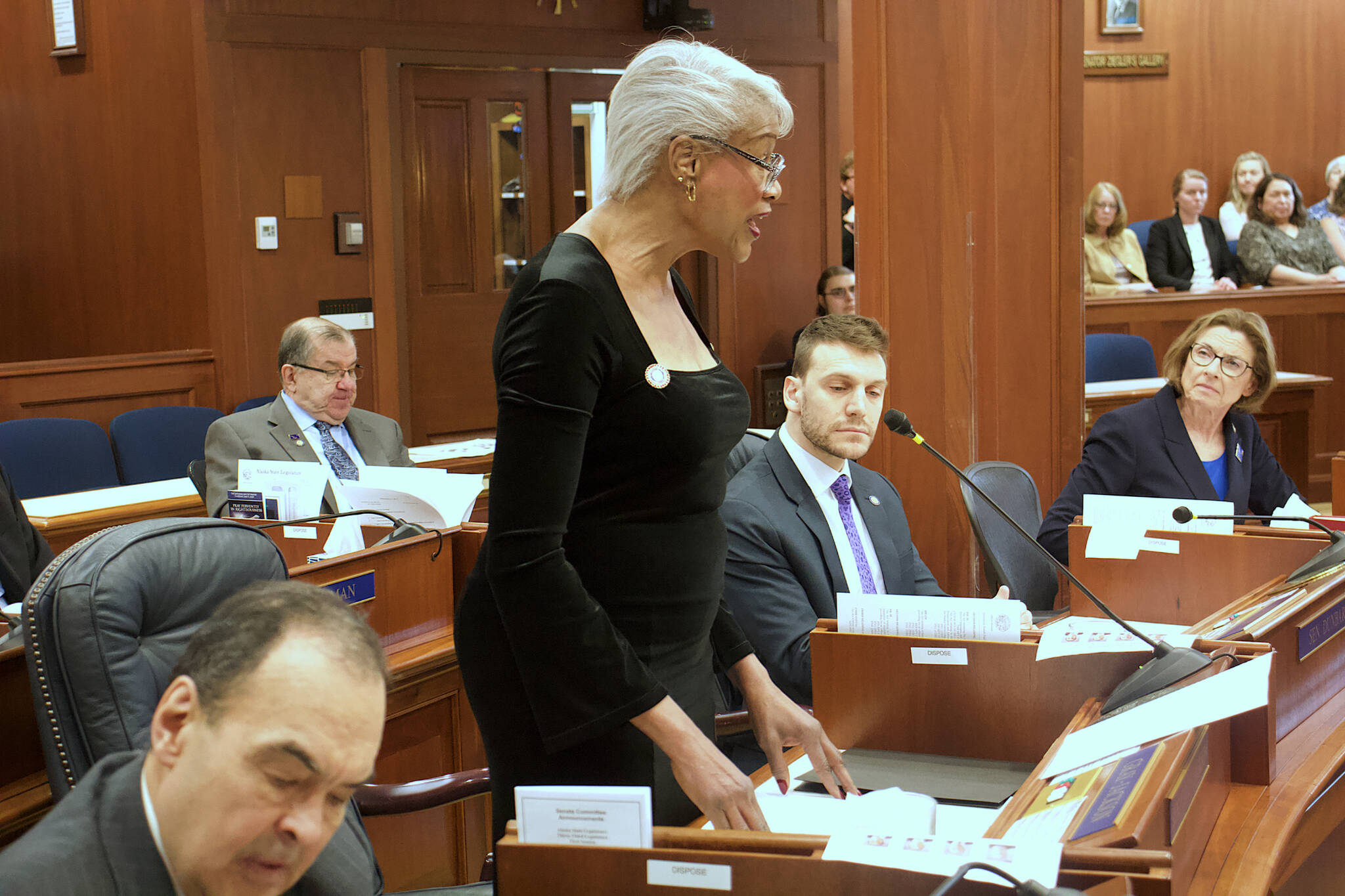A day that has been celebrated by Black Americans across the country since the 1800s is now moving toward state recognition here in Alaska.
On Thursday the Alaska Senate passed legislation that would make Juneteenth, an annual commemoration of the end of slavery in the U.S., a paid state holiday in Alaska. The bill will now head to the Alaska House for further consideration.
Juneteenth, which falls on June 19 of each year, is a celebration of when Union soldiers marched to Galveston, Texas the day in 1865 to inform the last enslaved Black Americans in Texas of their freedom following the Emancipation Proclamation and the Civil War’s ending.
Alaska’s recognition of the day would follow 21 other states that have already passed similar legislation along with the federal government’s recognition of the holiday, which was signed into law in 2021 by President Joe Biden.
The state Senate passed the bill with a 16-4 vote. The bill’s sponsor, Sen. Elvi Gray-Jackson, an Anchorage Democrat, said the bill is about bringing awareness to the day and honoring its significance to the people of Alaska and the country.
“By recognizing Juneteenth as a state holiday, we can celebrate and honor our African American communities’ contributions, and acknowledge the injustices they have faced in our state and in our nation,” she said during the Senate floor session.
Sen. David Wilson, a Wasilla Republican, voted against the passing of the bill Thursday morning. Others voting against the bill were Sen. Shelley Hughes of Palmer, Robert Myers of North Pole and Mike Shower of Wasilla, all Republicans who are white.
In remarks made while speaking on the floor, Wilson said he believes the commemoration of the date and its history is important, but argued moving to make Juneteenth a paid holiday for state staff was not a practical decision for the state financially and “will not solve the racial and ethnic disparities that we are facing in the state of Alaska.”
If the bill is passed by the House, it would become the 12th paid holiday given to state employees.
“We know where the state is at in our fiscal situation, the state has limited financial resources and adding another paid state holiday to the calendar could put a significant strain on our state budget,” he said.
Hughes spoke to Senate members as well, reiterating Wilson’s argument that the state is not in a place fiscally to be adding another paid holiday.
In an interview with the Empire after the passing of the bill, Gray-Jackson said she rejects Wilson’s argument.
“You cannot put a price on recognizing freedom, it’s the truth, and as a Black man he should understand that,”said Gray-Jackson, who is also Black.
Gray-Jackson said despite the few votes against the bill, she was “honored” that it passed. She said the fiscal impact of the paid holiday pales in comparison to the importance of recognizing and celebrating it as a state.
“I was honored that my caucus supported my efforts to make it a paid state holiday,” she said. “I was truly honored that they realize how important making Juneteenth a paid state holiday is to the people of Alaska and for America for that matter.”
Now that the bill is on its way to the House, Gray-Jackson said she will continue her efforts with Rep. Stanley Wright, an Anchorage Republican, and is the sponsor of a companion bill in the House.
“I know that there’s work, and I am going to work really diligently to move this forward before the session ends,” Gray-Jackson said.
In late February, the Anchorage Assembly unanimously voted to make the day a paid holiday for its municipal employees. According to City and Borough of Juneau City Manager Rorie Watt, Juneau has not made that move as of yet, but he remains optimistic that it could happen in the near future.
“Given that the state is moving it, it might be a cue to us,” he said.
• Contact reporter Clarise Larson at clarise.larson@juneauempire.com or (651)-528-1807.

